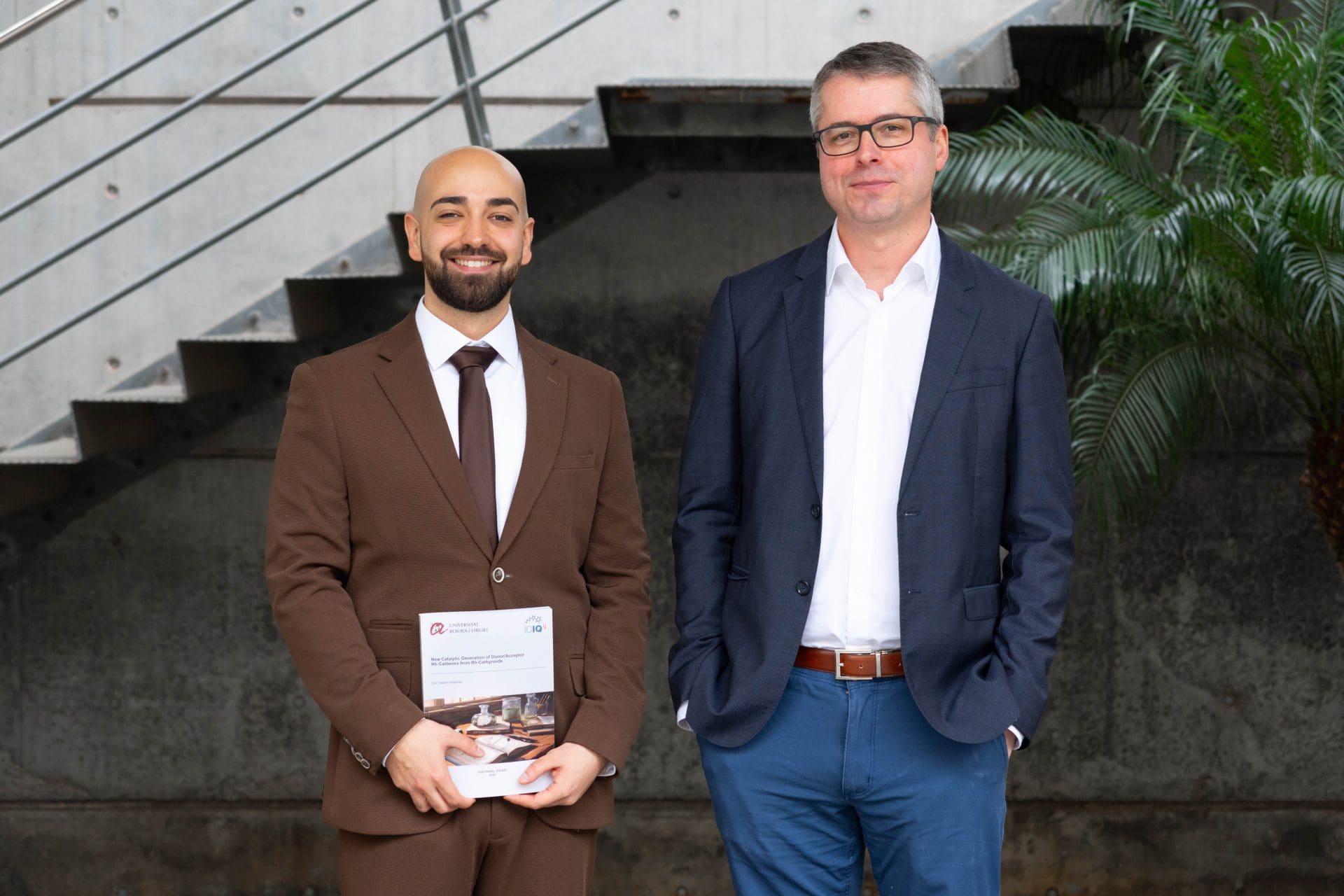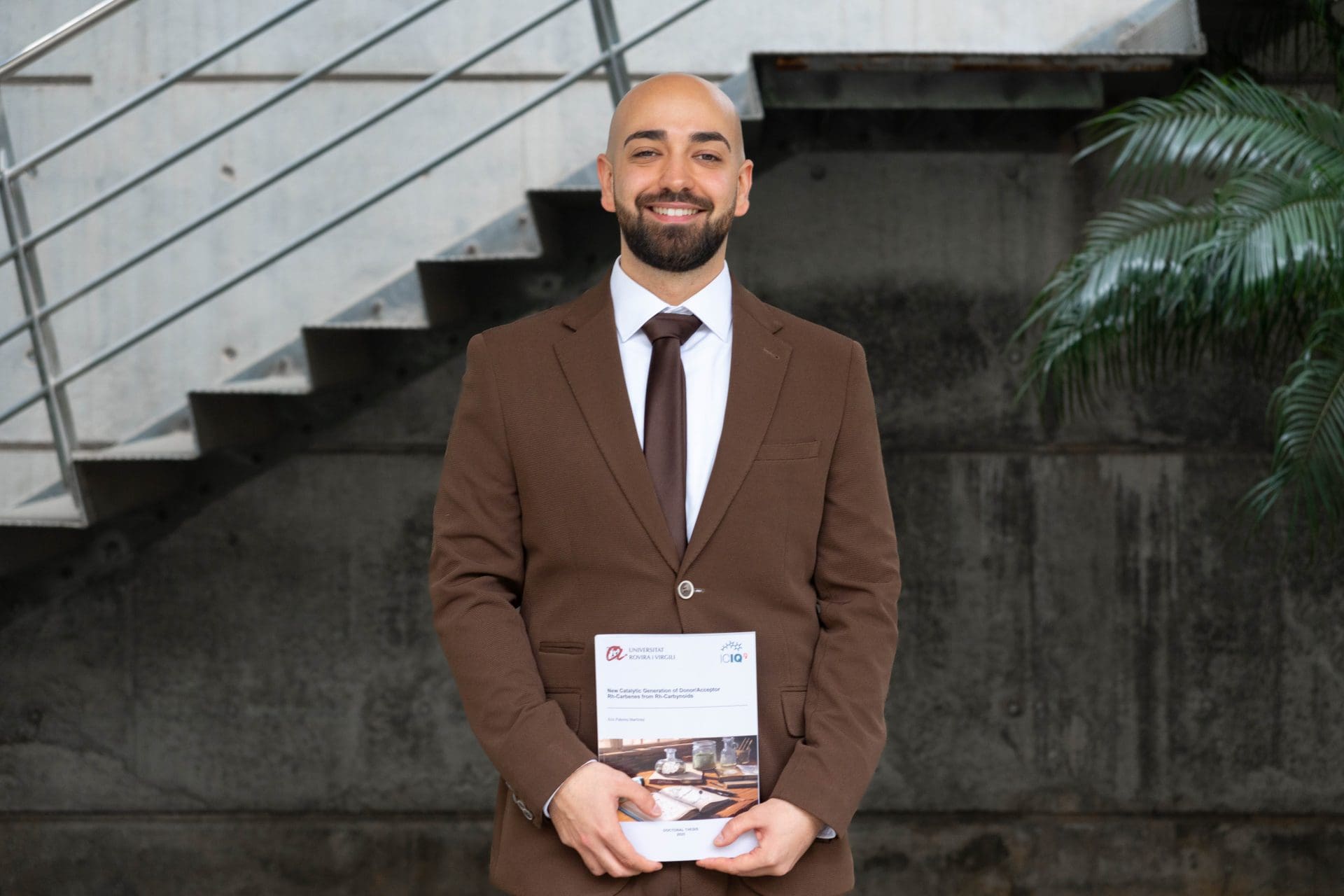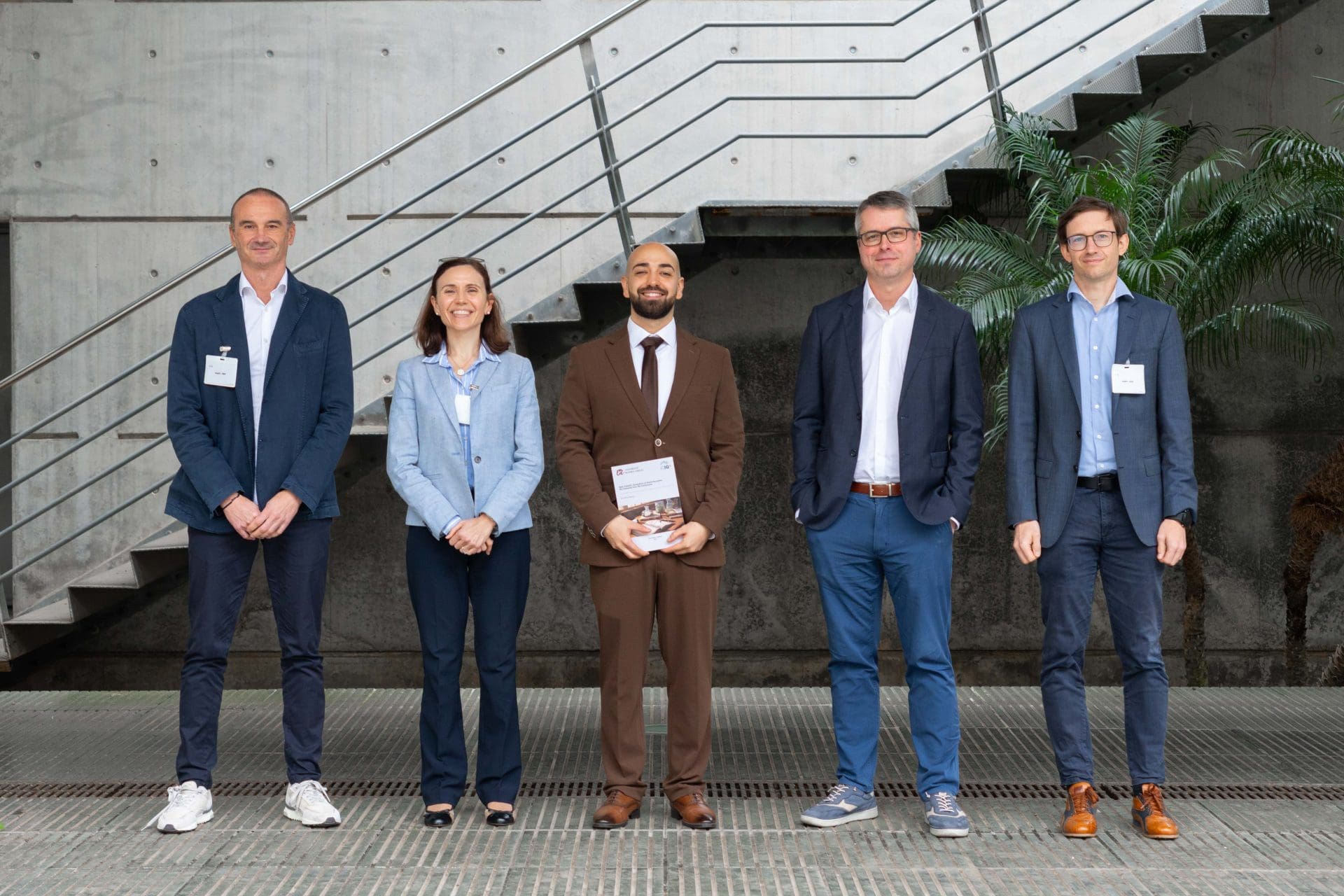Felicidades Dr. Palomo!
Eric Palomo, a PhD student who is under Prof. Marcos Garcia Suero supervision, has successfully defended his PhD thesis
Eric Palomo, a PhD student who is under Prof. Marcos Garcia Suero supervision, has successfully defended his PhD thesis entitled “New Catalytic Generation of Donor / Acceptor Rh-Carbenes from Rh-Carbynoids” publicly on Friday, 21 February.
The members of the evaluation committee were Prof. Dr. Mariola Tortosa Manzanares (Universidad Autónoma de Madrid), Prof. Dr. Jérôme Waser (Ecole polytechnique fédérale de Lausanne, Switzerland) and Prof. Dr. Félix Rodríguez Iglesias (Universidad de Oviedo).
Eric is originally from Vallecas, a large neighborhood in Madrid, Spain. After earning a degree in Chemistry from Universidad Autónoma de Madrid, he specialized in organic chemistry, completing a Master’s in Organic Chemistry at the same university. He has a deep passion for Madrid and enjoys learning intriguing facts about its history. In his free time, he loves cooking and exploring new restaurants, always making a list of places to try when visiting a new city.
His PhD studies were funded by an FPI doctoral fellowship from the Spanish Ministry of Science. This fellowship also supported a four-month research stay at Princeton University (USA) under the supervision of Prof. Robert Knowles, where he expanded his knowledge in photochemistry.

Why did you become a scientist?
I’ve always been deeply curious, and my fascination with how the world functions at a molecular level led me to become a scientist. I recall reading an article in a science magazine for kids that explained how altering a single atom in a molecule could drastically change its purpose, and that concept stuck with me.
What do you want to achieve as a scientist?
As a scientist, I want to contribute to the development of practical solutions in chemistry that can have a meaningful impact, particularly in pharmaceutical research and drug discovery.
What is your thesis about?
This PhD thesis introduces innovative catalytic methods to create Rh-carbene intermediates for building complex molecules by employing Rh-carbynoids. Using oxygen nucleophiles, it enabled the first catalytic generation of acyloxy and alkoxy Fischer-type carbenes, producing cyclopropyl-fused lactones or cyclopropyl-fused tetrahydrofurans, respectively. Aromatic C–H bonds were leveraged to generate donor/acceptor Rh-carbenes, allowing diverse transformations like selective C–H functionalization and O–H insertion. Notably, the work achieved the first enantioselective late-stage cyclopropanation of aromatic rings, opening new avenues for drug discovery and natural product synthesis.
The thing that I like most about my thesis is…
Solving problems, because it constantly challenged me to think critically and creatively. Each unexpected result was an opportunity to refine my approach, deepen my understanding of chemistry, and develop innovative solutions.
What will you miss the most from ICIQ?
All the friends I have made here. And beyond science, I will definitely miss the proximity to the sea, which was always a perfect escape to recharge.
What do you wish you had known at the beginning of your PhD?
I wish someone had told me that by the third year, things would start to move really quickly, and that by then, you’ve learned so much that your ability to work efficiently and analyze data becomes incredibly fast as well. If we started the PhD from the third year, everything would be much easier.
What advice do you have for someone who’s starting their PhD now?
Be patient with yourself. Research is often unpredictable, and things won’t always go as planned. Embrace the setbacks as learning experiences and don’t be too hard on yourself when experiments fail, or progress is slower than expected. Most of the times it’s not you, it’s just about chemistry.
Who/What has been your biggest influence/motivation?
Definitely, my dad and my sister. They have always been a source of inspiration for me, with their resilience and unwavering ability to tackle everyday challenges. They’ve taught me that some problems are all about perspective. Complaining is part of the process, but it doesn’t solve anything. Instead, we must fight for what we want with the same determination as our desire for that thing.
What is your favorite molecule?
I can only say cyclopropane. It’s the smallest carbocycle, present in countless medicines, and incredibly valuable in organic synthesis. Plus, it’s a central focus of 90% of my thesis. What else could I choose?
If you were a piece of lab equipment, what would you be?
If I were a piece of lab equipment, I would be a three-necked round bottom flask. In a way, it reminds me of an octopus, with its ability to multitask and adapt to different situations, all while maintaining balance in the lab. It’s versatile, just like how I felt in the lab, constantly juggling multiple projects at once. It’s fast-paced and requires attention to detail, much like how I managed several experiments simultaneously.
Tell us something about you that people might not know…
I might seem like a serious person at first, but once you get to know me, you’ll realize I’m not serious at all. I like joking around and having fun conversations when I’m comfortable.

Related news

Let's create a brighter future
Join our team to work with renowned researchers, tackle groundbreaking
projects and contribute to meaningful scientific advancements



















